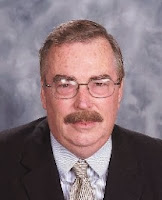Al Walsh is a regular contributor and valued expert at The NEW New World of Work. His business and financial experience has proven essential for corporations and financial professionals all the way up the career ladder. Thanks to Al for this submission. Patty De
The CFO role grows increasingly complex,
but a critical aspect of my work has always involved finding opportunities & weaknesses and driving performance improvements. In this, the CFO is in a unique position to view the business from macro & micro standpoints; both analytically and intuitively. Of course, multi-hat experience has broadened my perspective; viewing the business from different functional perspectives, and in one instance, from the CEO chair.
In both identifying opportunities, and driving improvements, people skills come into heavy play; which is the focus of this article.
The CFO’s interplay with the management team can vary greatly depending upon circumstances. In the extreme situation, I’ve taken direct leadership guiding a turnaround. I’ve also been involved in entrepreneurial situations partnering heavily with the CEO. But in most cases, there is a competent team in place and the CFO’s only direct authority lies within the F&A sphere; plus any other functions they may be overseeing. This typical situation is where people skills are most critical for success.
Most people take pride in their work, and naturally resent any perceived interference in their areas of authority. They don’t like having someone “looking over their shoulder”. They also naturally tend to shy away from change unless clear, immediate benefits are obvious. Even then, they will tend to hold back commitment unless they can take ownership and implement change “their way”. Forced change usually breeds resentment and avoidable complications.
This scenario assumes the employee is competent. Sometimes the employee IS the problem; and direct intervention may be necessary.
Seasoned CFOs understand that their roles are best served by insinuating themselves subtly across the organization.
Ronald Reagan famously said: “There is no limit to what you can accomplish if you don’t care who gets the credit.” This should be a guiding principle for any sitting CFO. Its one thing to see an opportunity, but it’s quite another to get it enacted. Miracles can be accomplished through others, once you obtain their buy-in. This is done by laying the opportunity out clearly, identifying definite & measurable benefits, sharing or relinquishing credit, providing room for the key manager(s) to go about it in their own unique way, and helping out in a non-intrusive manner. Trust is the key to obtaining a receptive audience.
Putting the shoe on the other foot, the CFO can be useful as a sounding-board for ideas hatched by others. This means keeping an open mind, listening carefully, asking incisive questions, assessing fairly, and providing meaningful input. It entails taking certain risks, and might require taking a partnership role in fleshing-out, selling, and implementing the idea. In other words, the CFO must transcend the mere “screener” role and approach ideas from a broader business perspective. Of course, this first requires building an atmosphere of trust with the management team so that they feel comfortable approaching you. They should feel at ease being able to “run an idea up the flagpole to see if it flies”, confidentially, without fear of consequences. They need to be able to trust in your fairness and discretion. If you have to say “no”, your reasoning should be clearly & rationally laid out and presented in a non-confrontational manner. Don’t be too quick to reject out-of-hand. Give the idea considered thought before responding. Better to be accused by an impassioned manager of being too slow than rejecting an idea too hastily. Remember, the CFO’s supposed to be a reliable and trusted thought-source.
In most companies, major changes require the CEO’s and/or Board’s buy-off. The CFO is usually “hooked-at-the-hip” with both. This makes the CFO a natural for sanity-testing, prepping, and possibly helping present & promote worthy ideas.
There’s little about the CFO job that’s more fun than taking one’s own, or someone else’s “hair-brained scheme” from concept to reality. It’s also very satisfying to work constructive change through others; and it helps cement strong relationships when done correctly. Not every idea will work out; no matter how appealing it may have been up front. In such cases, you must be prepared to take full or partial blame; even though you wouldn’t have received credit had it worked. Also remember that most actions can be reversed or mitigated if they don’t render the desired results.
The CFO’s role could be said to be part-fiduciary, part-analyst/assessor, part-strategist/tactician/innovator, part-advisor/mentor/confessor, and part-“doer”. All of these elements come into play in developing, promoting, and implementing business improvements.
People skills overlay it all.
Alan Walsh
You can Tweet this
Tweet

No comments:
Post a Comment